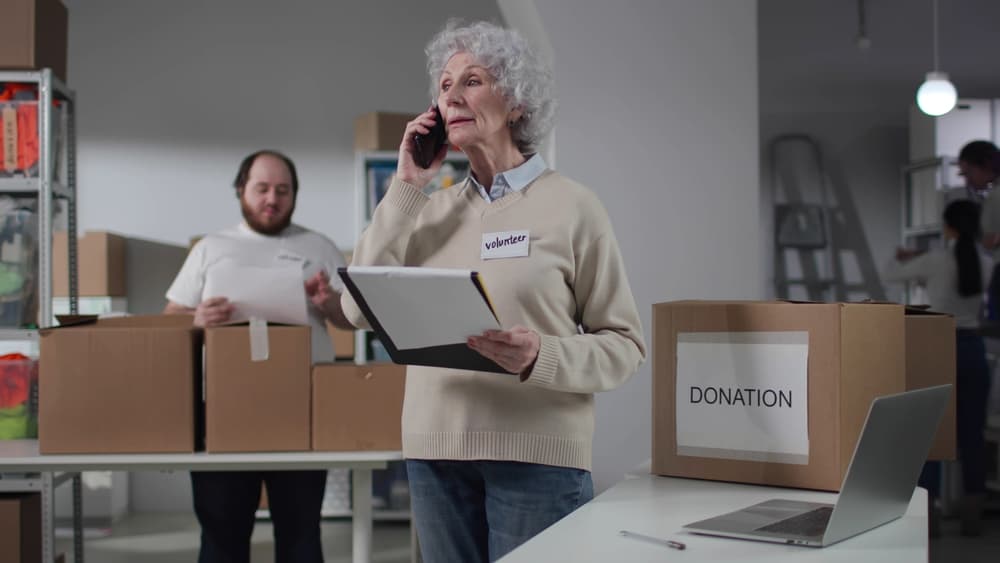The Telephone Consumer Protection Act (TCPA) is a federal law that restricts how businesses can communicate with individuals via telephone and text messages.
Enacted to protect consumers from unsolicited and intrusive calls and texts, the TCPA sets strict guidelines for automated dialing systems, pre-recorded messages, and text messaging.
Although the TCPA is very broad, there are specific exceptions to its rules that allow for certain types of calls and messages without violating the Act.
Each of the three exceptions to the TCPA serves a unique purpose and comes with its own criteria and implications.
Armed with knowledge, consumers can better understand their rights and the instances in which they might receive TCPA-exempt communications.
If you have received robocalls or telemarketing calls even though you’ve registered your number with the national do not call registry, contact an experienced nationwide TCPA violations lawyer to discuss your potential case.
Exception 1: Emergency Purposes
One of the key exceptions to the Telephone Consumer Protection Act (TCPA) pertains to calls and messages made for emergency purposes.
This exception recognizes the critical need for timely and unimpeded communication in situations where immediate attention is required for the safety, health, or welfare of individuals.
Understanding the Emergency Purposes Exception
The TCPA allows for calls or text messages made for emergency purposes without prior consent.
This exception is designed to ensure that crucial information can be relayed quickly in situations where delay could result in harm.
The Federal Communications Commission (FCC), which oversees the enforcement of the TCPA, defines emergency purposes as calls made necessary in situations affecting the health and safety of consumers.
This is a deliberately broad definition, allowing for flexibility in response to various emergency scenarios.
Examples of Situations Where the Emergency Exception Applies
- Natural Disasters. Alerts about impending or occurring natural disasters, like hurricanes, floods, or earthquakes, where immediate action might be necessary to safeguard lives and property.
- Health Emergencies. Communications regarding urgent health risks, such as notifications of water contamination, outbreaks of diseases, or recall of dangerous products.
- Public Safety Warnings. Calls or messages from government authorities regarding imminent threats to safety, such as evacuation orders, active shooter situations, or terrorist threats.
- Critical Service Outages. Alerts about essential service disruptions, like power outages, that could pose immediate risks to health or safety.
The emergency exception to the TCPA is narrowly tailored to ensure that it is only used in genuine emergencies.
The intent is not to provide a loophole for marketing or non-urgent communications but to facilitate swift information dissemination when it matters most.
Businesses and organizations must exercise due diligence in determining whether their communication truly meets the criteria for an emergency, as misuse of this exception can lead to significant legal consequences under the TCPA.
For consumers, understanding this exception provides clarity on why they might receive certain unsolicited calls or messages and reassures them that such communications are intended for their immediate benefit and safety.
Exception 2: Manual Texting
A significant exception to the Telephone Consumer Protection Act involves manual texting. This exception is particularly relevant in an era where texting is a common communication method for both personal and business interactions.
How Manual Texting Falls Outside TCPA Restrictions
Manual texting refers to text messages sent individually by a person using a standard messaging device or platform, as opposed to automated systems or software designed to send texts in bulk.
The TCPA primarily targets automated calling systems and robocalls, including texts sent from autodialers.
Why Are Some Texts Excluded from the TCPA?
Since manual texting does not involve an autodialer, it is not covered by the TCPA’s restrictions on automated texts.
This means that businesses and individuals can send manually typed texts without falling under the strict compliance requirements of the TCPA.
Despite the exemption from TCPA regulations, certain principles of responsible communication should still guide manual texting practices:
- Respecting Consent. Even with manual texts, obtaining the recipient's consent, especially for commercial messages, remains a best practice. This helps ensure that communications are welcomed and not perceived as intrusive or spam.
- Avoiding Harassment. Manual texts should not cross into harassment. Sending excessive messages, especially after being asked to stop, can lead to legal consequences under harassment laws, even if it does not violate the TCPA.
- Maintaining Professionalism. For businesses, maintaining a professional tone and respecting the boundaries of appropriate communication times (such as avoiding late-night texts) is important.
- Privacy Considerations. Being mindful of privacy concerns, such as not sharing sensitive personal information over text, is crucial.
- State Laws and Regulations. Be aware of and comply with any state-specific laws regarding texting and digital communications, which can have different or additional requirements beyond the TCPA.
While manual texting provides more flexibility compared to automated texting in terms of TCPA compliance, it still requires a mindful approach.
Adhering to principles of consent, respect, and professionalism ensures that manual texting remains an effective and respectful communication tool.
Exception 3: Calls by Tax-Exempt Nonprofit Organizations

Another notable exception to the Telephone Consumer Protection Act involves calls made by or on behalf of tax-exempt nonprofit organizations.
This exception recognizes the unique role of nonprofits in society and their need to communicate with supporters and the public.
Why Are Nonprofit Organizations Exempt from the TCPA?
The TCPA allows tax-exempt nonprofit organizations to make calls that might otherwise be restricted under the Act.
This includes calls made using an autodialer or pre-recorded voice messages, which are typically subject to stricter TCPA guidelines.
Nonprofit organizations often rely on telephone communication for a range of activities crucial to their mission.
The TCPA acknowledges this need and provides greater leeway for such calls, balancing consumer protection with the operational requirements of nonprofits.
The following are some examples of nonprofit activities typically covered by this exception.
- Fundraising Calls. Many nonprofits use phone calls as a key tool for fundraising efforts. These calls can involve soliciting donations, informing supporters about fundraising events, or thanking donors for their contributions.
- Awareness Campaigns. Calls to raise awareness about important issues, campaigns, or advocacy efforts are common among nonprofits. These calls aim to educate the public, mobilize support, or encourage action on specific causes.
- Event Notifications. Nonprofits often organize various events, from community gatherings to educational seminars. Calls to invite participants, provide information about events, or follow up with attendees can fall under this exception.
- Volunteer Coordination. Calls to recruit, organize, or communicate with volunteers are essential for many nonprofits. These calls help in managing volunteer activities and ensuring effective participation in various initiatives.
- Service-Related Announcements. For nonprofits that provide services to the community, calls to inform beneficiaries about service availability, changes, or requirements are often necessary.
The non-profit organization exception provides flexibility for nonprofits, but it doesn’t completely exempt them from all aspects of the TCPA or other relevant laws.
For instance, calls to numbers on the National Do Not Call Registry may still be restricted.
Additionally, nonprofits should strive to respect the preferences of individuals who do not wish to receive calls, maintaining ethical communication practices.
This exception underlines the TCPA's balance between protecting consumer rights and acknowledging the significant role of tax-exempt nonprofit organizations in society.
By understanding and responsibly utilizing this exception, nonprofits can effectively communicate with their audiences while respecting the legal framework set forth by the TCPA.
What Does the TCPA Consider Consent?
Consent plays a pivotal role in compliance with the Telephone Consumer Protection Act, especially in commercial communications.
Being able to recognize TCPA consent violations helps consumers know when their rights have been violated and therefore eligible for potential compensation.
Prior Express Consent
For commercial calls and messages, particularly those made using auto-dialers or containing pre-recorded messages, the TCPA requires 'prior express consent' from the recipient.
This means that the individual must have willingly provided their phone number and agreed to this contact.
Written Consent for Telemarketing
For telemarketing calls, the TCPA mandates written consent. This includes electronic forms of consent like email, website form submissions, or text message acknowledgments.
Revocation of Consent
Consent under the TCPA can be revoked. Consumers have the right to withdraw their consent at any time, and businesses must provide an easy and clear way to opt out of future communications.
Documenting Consent as a Consumer
It’s important for people who have given a business consent to contact them to keep records of any type of consent, including how and when it was obtained, to protect against potential disputes or complaints.
Consent in Non-Commercial Communications
For non-commercial calls, such as informational or survey calls, the requirements for consent are typically less stringent.
However, businesses should still verify whether consent is needed based on the nature of the call and the relationship with the recipient.
Other Laws and Regulations Governing Communications
The Fair Debt Collection Practices Act (FDCPA) governs the practices of third-party debt collectors, including how and when they can contact consumers.
In addition, many states have their own telemarketing laws, some of which are more restrictive than the TCPA. Businesses must comply with these laws in addition to the TCPA.
The CAN-SPAM Act of 2003 governs commercial email communications and sets rules for sending behavior, content, and unsubscribe compliance.
Contact a TCPA Violations Lawyer
If you suspect that your rights under the Telephone Consumer Protection Act have been breached, act immediately by consulting with the legal professionals at Kazerouni Law Group.
Contingency Fee Agreements
As attorneys focused on TCPA and consumer protection matters, the Kazerouni Law Group offers knowledgeable legal guidance without the burden of upfront fees.
At Kazerouni Law Group, we take on cases on a contingency basis. This means we are compensated only when we successfully secure a settlement for you.
Proven Experience and Successful Results
Our team, skilled in handling consumer federal law violations, brings a wealth of trial experience to your case.
We have successfully reclaimed over $1 billion for clients across the country. Choosing the right attorney means pursuing justice free from the anxiety of substantial fees or financial obligations.
Get the Legal Representation You Need

Ensure that your rights are vigorously defended by reaching out to a Consumer TCPA Violations attorney today.
Contact us at 800-400-6808 or connect with a consumer protection attorney online to discover how we can assist you in your pursuit of justice.